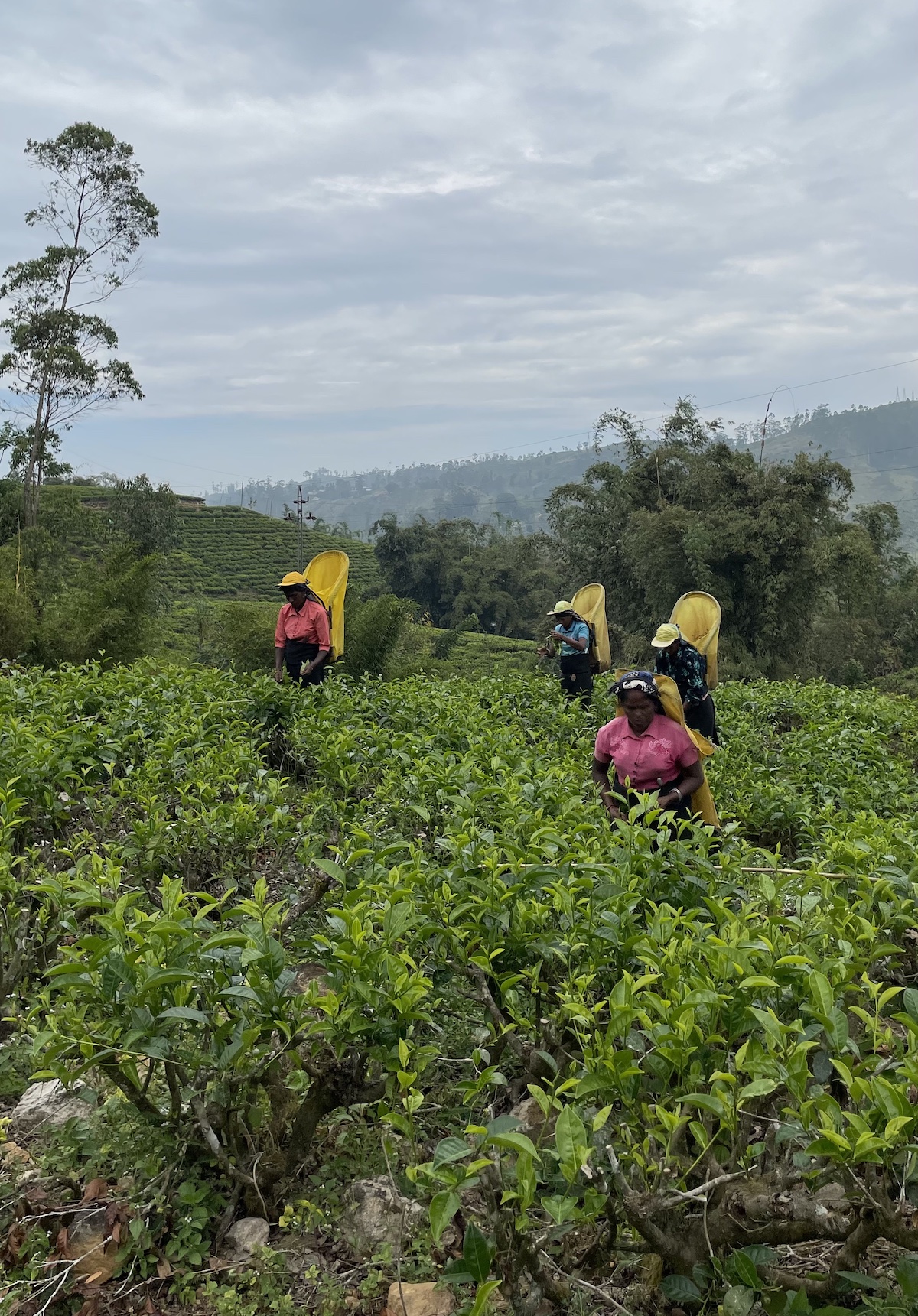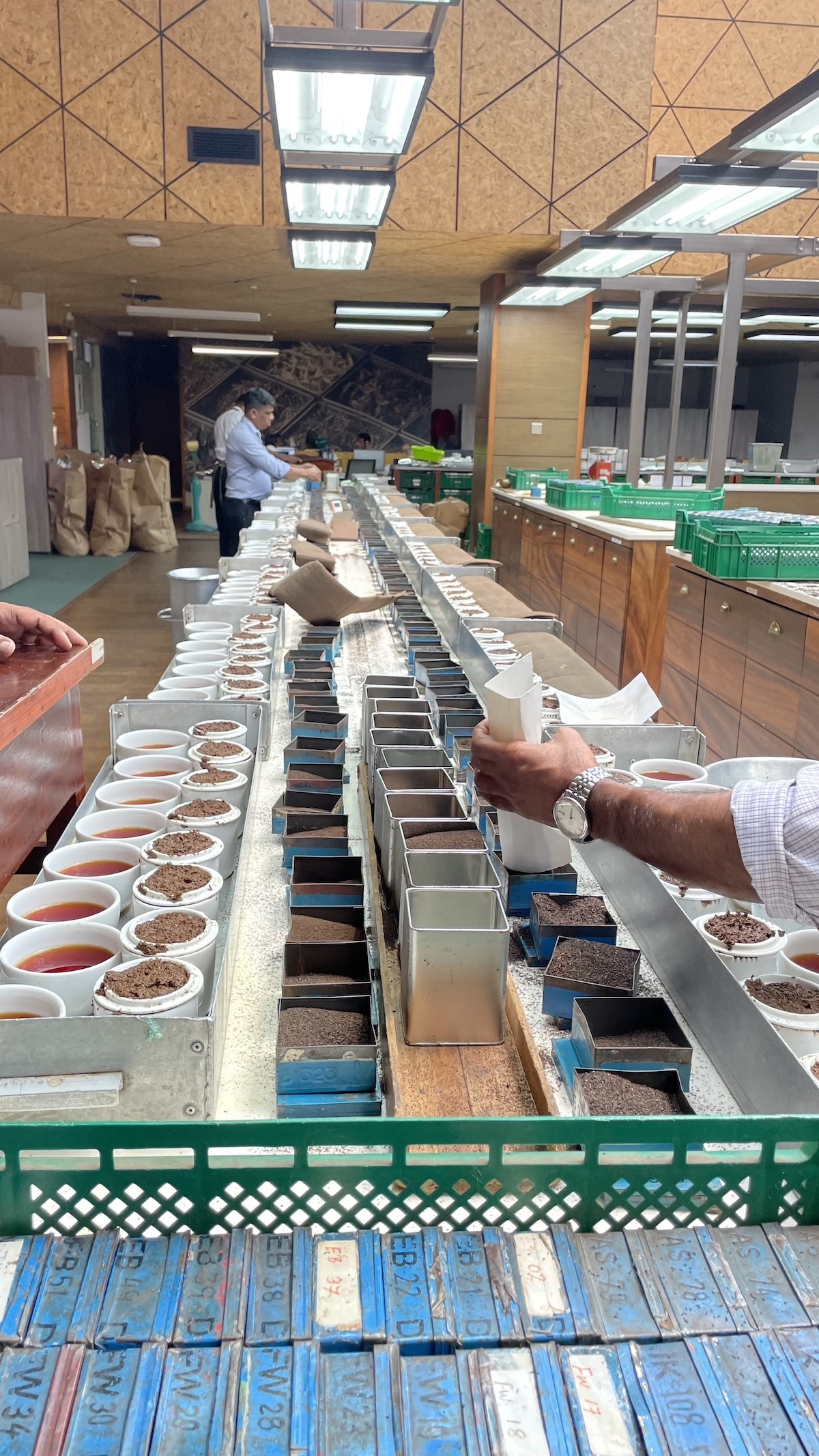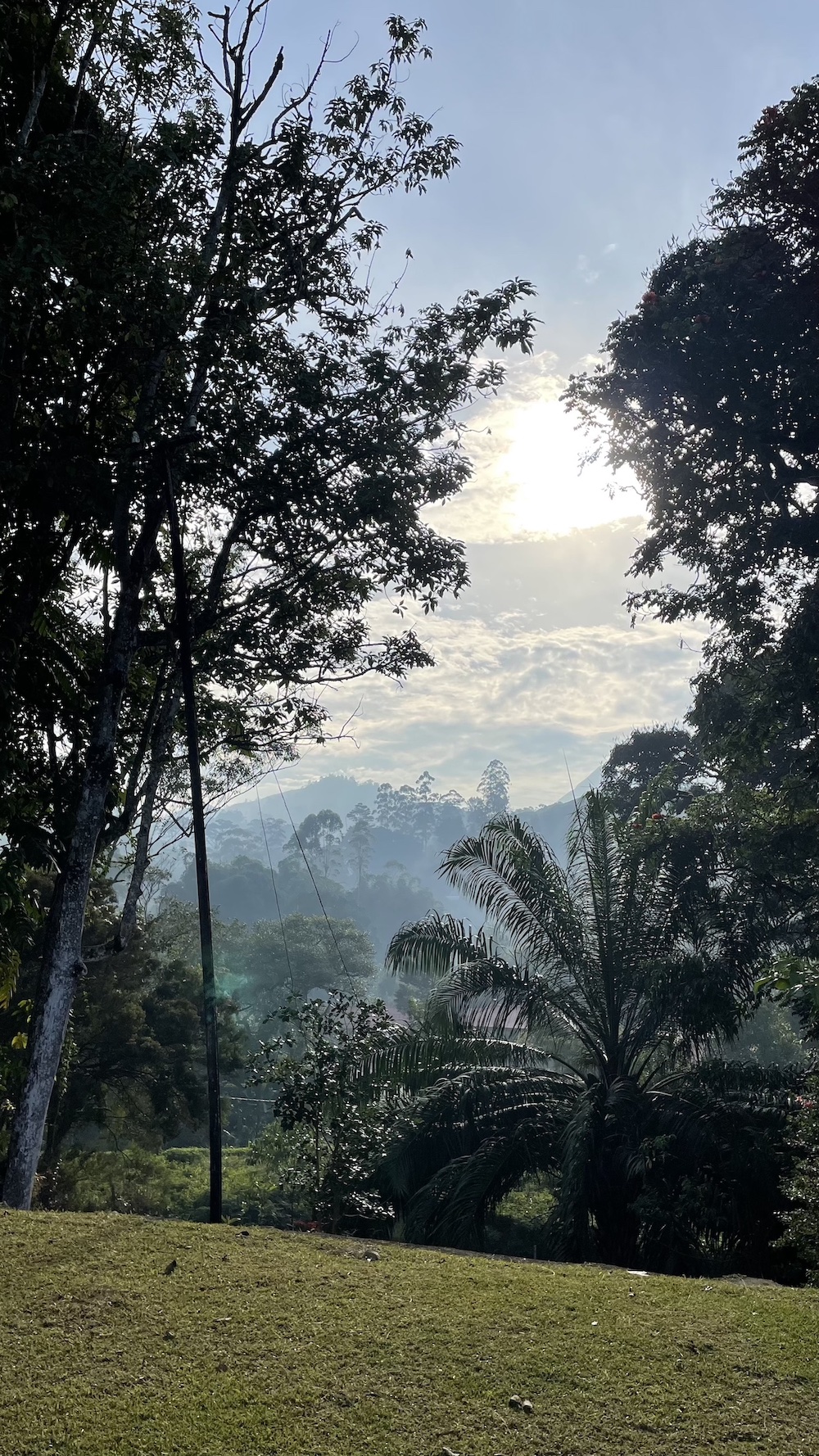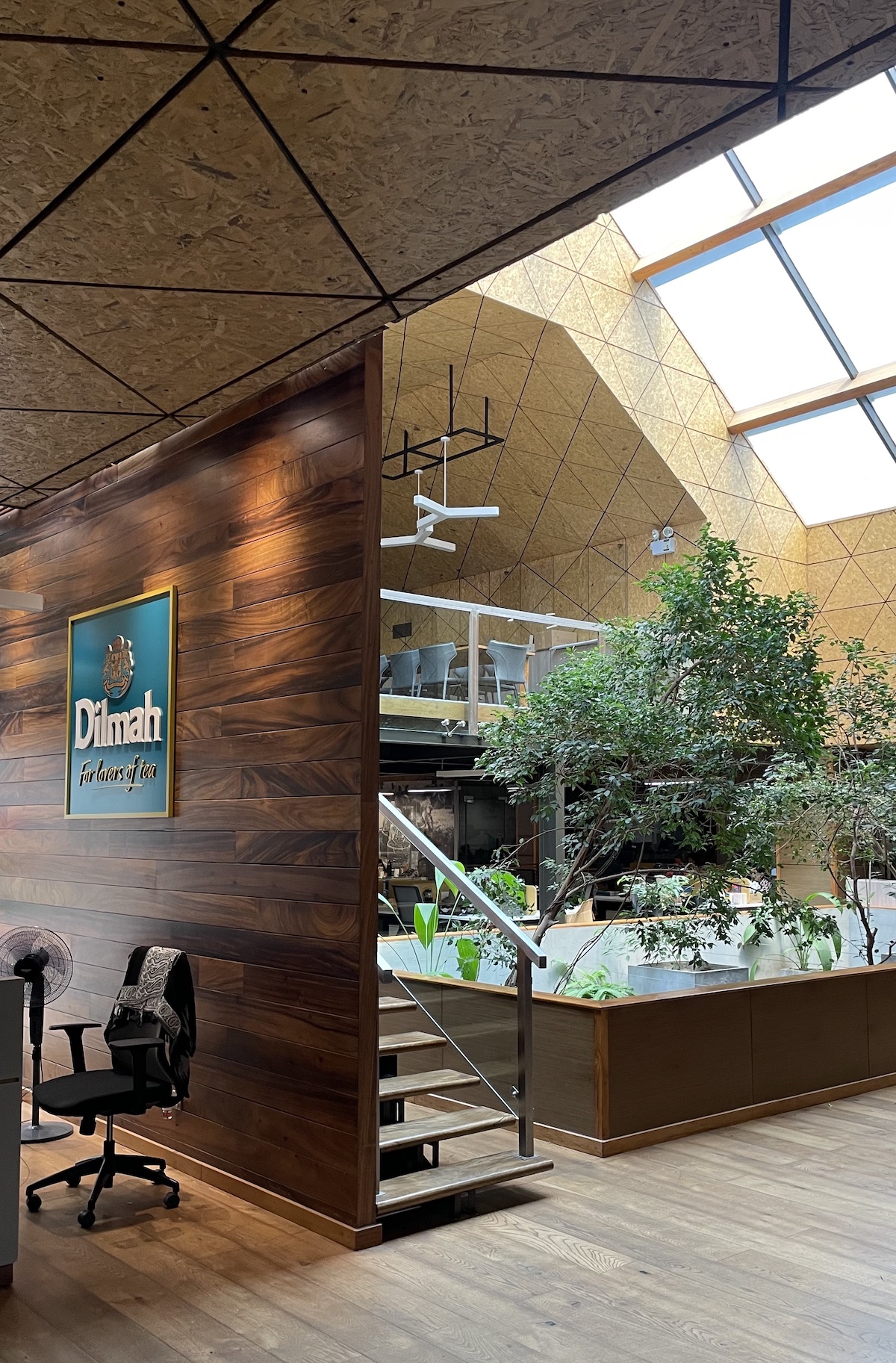

Written by Simone
Dilmah has a strong focus on sustainability and well-being. As the founder eloquently states in the video The Boy Who Loved Tea:
"I had a dream to give consumers the finest tea on earth, and workers a better life.”
From the very beginning, this vision has been a pillar of the brand—and they truly bring it to life. When Andrew and I visited Sri Lanka, we saw firsthand how deeply these values are embedded in their work.
Dilmah tea is a premium product, carefully crafted with precision. Only ‘two leaves and a bud’ are handpicked from the Camellia plant—a meticulous process that can only be done manually by women. It’s demanding work, but Dilmah ensures these women don’t have to choose between their jobs and their families. On the tea estates, daycare centers and schools provide their children with education and care, helping to break the cycle of poverty by offering opportunities beyond the fields. In addition, an on-site market allows workers to purchase groceries and essentials at reduced prices, further supporting their well-being.
Beyond the tea fields, we visited the MJF Foundation, Dilmah’s nonprofit organization dedicated to empowering local communities. From providing cooking classes that enable women to start their own businesses to offering specialized education and daycare for children—including those with disabilities—the foundation is a testament to the brand’s unwavering commitment to improving lives. Dilmah calls this philosophy
“A Cup of Kindness.”
This ethos extends beyond people—it includes nature. Sustainability is not just a commitment to the workforce but also to the planet. Dilmah’s conservation initiatives focus on protecting flora, fauna, and natural ecosystems, ensuring a harmonious balance between tea production and environmental responsibility. You can explore more of their efforts at DilmahConservation.org.
With a brand so deeply rooted in sustainability and well-being, we at ACES of SPACE challenge ourselves to uphold these principles in our own work. As designers, our role is to create immersive experiences that leave a lasting impact while minimizing our footprint on the planet. This means rethinking materials and finishes—prioritizing those that are renewable, bio-based, recycled, or reclaimed. Have you ever heard of date pit tiles or bio-receptive 3D-printed ceramics? These are just some of the innovative materials we’re exploring.
We’re also examining our own waste streams—finding ways to transform tea waste into functional design elements like joinery panels, menu covers, or packaging. Beyond storytelling, these materials bring an added sensory layer, carrying the natural aroma of tea within them.
Sustainability isn't just about materials—the ‘hardware’—but also about human well-being, the ‘software’ of an experience. Our design philosophy focuses on nurturing happiness, mindfulness, and connection—not just for guests and clients, but also for staff and the wider community.
Tea is inherently about well-being, offering benefits for both body and mind. Just like the tea plant, which flourishes in changing conditions of light, warmth, drought, and rain, people thrive when their environments adapt to their needs. Through a carefully curated sensory journey—adjusting music, sound, lighting, and scent throughout the day—we create spaces that echo the rhythm of nature, nurturing both the body and spirit.
By integrating these elements, we ensure that the essence of Dilmah—its authenticity, craftsmanship, and deep respect for people and nature—is not just communicated, but fully experienced.
For better web experience, please use the website in portrait mode



